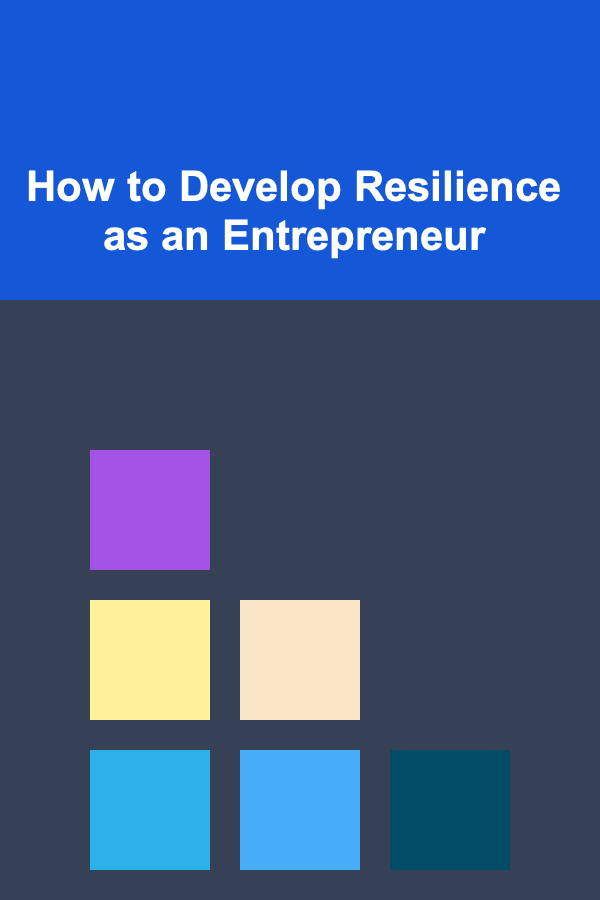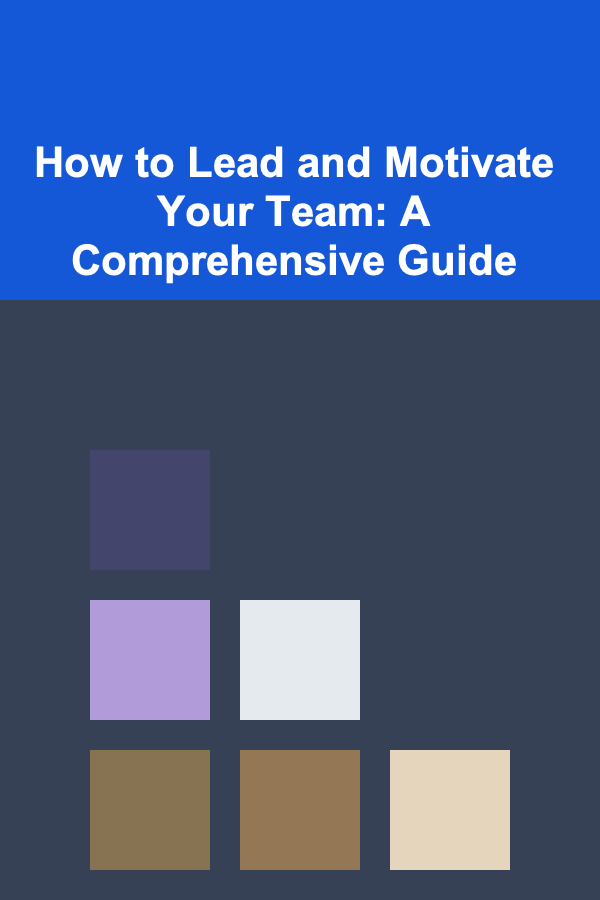
How To Leverage Your Academic Projects on Your Resume
ebook include PDF & Audio bundle (Micro Guide)
$12.99$6.99
Limited Time Offer! Order within the next:

In today's competitive job market, crafting an effective resume is crucial for standing out. While most job seekers focus on their professional experiences, a significant number of them overlook the value of academic projects. These projects can be a powerful tool for demonstrating your skills, expertise, and potential to future employers, especially if you're early in your career or transitioning into a new industry. Academic projects, whether completed during your studies or as part of research work, offer a unique opportunity to showcase your practical abilities, problem-solving skills, and creativity.
This article delves into how you can effectively leverage academic projects on your resume, offering tips on how to present them in a compelling and professional manner. By the end of this guide, you'll have a clear understanding of how to strategically include academic projects on your resume to make a lasting impression.
Why Academic Projects Matter
Before diving into how to list your academic projects, it's important to understand why they matter. Employers are not just looking for a degree; they want to see how you've applied your knowledge in real-world situations. Academic projects demonstrate the following qualities:
- Problem-Solving Skills: Employers want individuals who can identify problems and develop effective solutions. Academic projects often involve overcoming challenges, working through issues, and finding innovative solutions.
- Technical Proficiency: Many academic projects require the use of specific tools, software, or methodologies. By including these projects, you can highlight your technical expertise and proficiency in various tools that are relevant to your field.
- Teamwork and Collaboration: Many projects require working with others, which shows you can collaborate, communicate, and contribute in a team environment.
- Time Management: Academic projects often have deadlines, and learning how to meet them efficiently speaks volumes about your ability to manage time and prioritize tasks.
- Research Skills: Many academic projects require research and analysis, showing your ability to gather data, analyze information, and make decisions based on findings.
- Creativity and Innovation: Certain projects demand innovative thinking and creativity. Employers value employees who can think outside the box and provide fresh solutions to problems.
How to Choose Which Projects to Include
Not all academic projects are created equal. To truly leverage these projects on your resume, you must carefully choose which ones to highlight. Here are a few things to consider:
- Relevance to the Job: Focus on projects that directly relate to the position you are applying for. For example, if you're applying for a software development job, emphasize projects that involved programming or technical problem-solving.
- Impact and Scope: Projects that have had a significant impact or were larger in scope can make a stronger impression. For instance, a project where you developed a new software application for a client will likely stand out more than a basic class assignment.
- Recognition: If your project received any recognition, awards, or was published in any capacity, make sure to highlight this. Recognition adds credibility to the work you've done.
- Skills Demonstrated: Choose projects that demonstrate a variety of skills, from technical abilities to teamwork, leadership, and problem-solving. Employers want to see that you are versatile.
Structuring Your Academic Projects Section
The way you structure your academic projects section can greatly impact how recruiters view your experience. Follow these guidelines to make the most out of this section.
1. Project Title and Duration
Start by giving your project a clear, descriptive title. This helps hiring managers quickly identify what the project was about. Along with the title, include the duration of the project. For example:
- Project Title: Data Analysis of Consumer Behavior Trends
- Duration: January 2024 - May 2024
If the project spanned multiple phases or had distinct stages, consider breaking them down briefly.
2. Brief Description of the Project
In 2-3 sentences, describe the project's objective, scope, and any relevant context. Focus on the problem you were trying to solve or the goal you aimed to achieve. Keep it concise, but ensure it's clear and impactful.
For example:
- Project Description: "Developed a data-driven analysis of consumer behavior trends over a 5-year period for a market research firm, using Python and machine learning techniques to identify key purchasing patterns."
3. Your Role and Responsibilities
Clarify your specific role within the project. Even if the project was a group effort, your personal contributions should be outlined. Be sure to mention if you took the lead on any part of the project, as this shows initiative and leadership.
For example:
- Role: Lead Data Analyst
- Responsibilities :
- Collected and cleaned large datasets from various sources.
- Conducted exploratory data analysis and built machine learning models to predict consumer behavior.
- Presented findings to senior management and provided actionable insights for marketing strategies.
4. Skills Utilized or Developed
This is where you can list the specific skills that you applied or honed during the project. Tailor these skills to align with the job description you're applying to, and include both hard (technical) and soft (interpersonal) skills. Some examples might include:
- Technical Skills: Python, R, Machine Learning, Data Visualization, SQL
- Soft Skills: Teamwork, Communication, Time Management, Leadership
5. Achievements and Outcomes
Where possible, quantify the results of your academic project. Numbers, percentages, and data points can provide concrete evidence of your success. Did you improve a process? Increase efficiency? Develop a new solution? If you can, add measurable outcomes such as:
- Achievements :
- Improved consumer targeting strategies by 30% based on data-driven insights.
- Reduced data processing time by 25% through the development of a custom Python script.
Including metrics or concrete outcomes shows that you are results-oriented and can drive impact, even if your work was academic.
Example of Academic Project on Resume
Here's an example of how you might structure an academic project on your resume:
Project Title: E-Commerce Website Optimization
Duration: September 2023 - December 2023
Project Description: Conducted a thorough audit of an e-commerce website to identify key areas of optimization, focusing on load times, mobile responsiveness, and conversion rate improvements.
Role: Project Lead
Responsibilities:
- Led a team of 4 to analyze user data and identify website bottlenecks.
- Developed a series of A/B tests to improve load times and user engagement.
- Implemented changes that resulted in a 15% increase in the site's conversion rate.
Skills Utilized: Web Development, Data Analytics, Project Management, A/B Testing
Achievements:
- Increased site speed by 20% through performance optimization techniques.
- Improved mobile responsiveness, resulting in a 10% higher conversion rate on mobile devices.
Tailoring Your Academic Projects to Different Roles
As you apply for different jobs, it's crucial to tailor the academic projects section of your resume to match the role you're pursuing. Here's how to do this for various industries:
1. Technology and Engineering Roles
For tech or engineering roles, highlight projects that involve technical skills, problem-solving, and coding. Projects that demonstrate your ability to work with specific programming languages, software, or tools will be particularly relevant.
Example: Software Development Project --- "Built a custom CRM system using JavaScript and Node.js, which improved user workflow efficiency by 30%."
2. Marketing and Business Roles
For marketing or business roles, focus on projects where you've conducted research, developed strategies, or analyzed market trends. Highlight the outcomes and how they contributed to the success of the project.
Example: Market Research Project --- "Conducted in-depth market analysis for a local startup, which led to a 25% increase in customer acquisition through targeted social media campaigns."
3. Creative and Design Roles
For creative or design positions, showcase projects where you've demonstrated your creative skills, such as graphic design, branding, or UX/UI design. Highlight your process, tools used, and the impact of your design solutions.
Example: UX/UI Design Project --- "Redesigned the user interface for a mobile application, improving the user experience and reducing the bounce rate by 15%."
Additional Tips for Leveraging Academic Projects
- Include Projects in a Separate Section: If you have several academic projects, you can create a separate section on your resume specifically for them. This is especially useful for those in the early stages of their career.
- Be Honest: Ensure that you're accurately representing your involvement in the project. Misleading employers about the extent of your contributions can backfire.
- Focus on Transferable Skills: Even if a project isn't directly related to the job you're applying for, focus on transferable skills like problem-solving, leadership, communication, and teamwork.
- Use Action Verbs: Begin each bullet point with an action verb to make your responsibilities and achievements sound more impactful (e.g., "Developed," "Led," "Implemented," "Optimized").
- Consider Including Academic Achievements: If you've received any academic awards, honors, or scholarships, consider adding these to your resume as well.
Conclusion
Leveraging your academic projects on your resume can be an effective way to showcase your skills, experience, and potential. These projects are more than just assignments; they demonstrate your ability to apply knowledge in real-world contexts, work collaboratively, and achieve measurable outcomes. By selecting the right projects, structuring them clearly, and tailoring them to the job you're applying for, you can enhance your resume and make a lasting impression on potential employers.
Remember, employers are not only looking for academic achievements but also for evidence that you can apply what you've learned to solve problems, innovate, and contribute to their organizations. By leveraging your academic projects, you can make a compelling case for why you're the ideal candidate for the role.
Reading More From Our Other Websites
- [Personal Investment 101] The Top Deep Learning Business Ideas That Can Make You Money
- [Screen Printing Tip 101] Best Screen Printing for Eco‑Friendly & Sustainable Apparel Production
- [Home Budget Decorating 101] How to Decorate with Budget-Friendly Home Accessories
- [Home Maintenance 101] How to Maintain Your Home's Home Theater and Audio Systems
- [Organization Tip 101] How to Involve Family and Friends in Time Capsule Creation
- [Personal Care Tips 101] How to Enhance Your Mascara Routine with Lash Primer
- [Home Lighting 101] How to Use Outdoor Lighting to Enhance Your Backyard
- [Personal Investment 101] How to Manage Your Investment Property Efficiently
- [Personal Finance Management 101] How to Invest in Index Funds for Beginners
- [Biking 101] How to Choose the Perfect Women's Bike for Your Ride

Crafting Effective Messaging: A Guide for Corporate Communicators
Read More
How to Mix Modern and Traditional Holiday Decor in Your Home
Read More
How to Protect Your Assets
Read More
How to Develop Resilience as an Entrepreneur
Read More
How to Choose Healthy Options When Eating Out
Read More
How to Lead and Motivate Your Team: A Comprehensive Guide
Read MoreOther Products

Crafting Effective Messaging: A Guide for Corporate Communicators
Read More
How to Mix Modern and Traditional Holiday Decor in Your Home
Read More
How to Protect Your Assets
Read More
How to Develop Resilience as an Entrepreneur
Read More
How to Choose Healthy Options When Eating Out
Read More